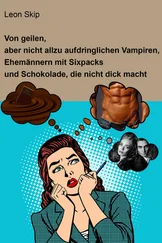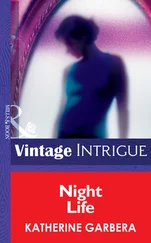“Yep, he should’ve fired her on the spot.”
“Is that humor?”
“If you have to ask, probably it isn’t. Anyway, now I’m on the cold floor of the diner. You know what I just remembered? Elizabeth used to say that there were two types of people in the world, people with complicated minds and people with complicating minds.”
“You’re suggesting I just overcomplicated things, is that it? By the way, it’s interesting, Sam, that you bring in Elizabeth as an authority on my own profession.”
“I miss Elizabeth sometimes to the point that all the oxygen in the world wouldn’t be enough to let me breathe. I just stand there choking. If you write that down, I’ll kill you.”
Dr. Nissensen set the notebook on the table next to his chair.
“Sam, do you ever feel — say, of late — that you’re capable of doing another person bodily harm? That is, a person you can name. Such as Istvakson. A person you have some actual acquaintance with in your life.”
“Such as myself, you’re saying. Doing bodily harm to myself, you’re saying.”
“You say, ‘I’d like to kill so-and-so,’ or ‘That person should be killed.’ I’m concerned is all. It seems a reasonable avenue of inquiry.”
THE EVENING OF Elizabeth’s first intermediate lindy lesson, we ate a light dinner, omelets and bread; we each had a glass of wine, too. “You get all spruced up,” I said. “I’ll clear the dishes and make coffee.” Elizabeth was usually casual about dressing and undressing in front of me, but this time she shut the bedroom door. I thought it was sweet, how she wanted to make a grand entrance. Which she did, wearing a black dress with a slit up the right thigh and a simple pearl necklace. As I looked at her slim body, her hair bobby-pinned up rather haphazardly, dark red lipstick that without fail drove me nicely crazy, she slipped on her shoes, balancing on one foot, then the other. “I think I’ll skip coffee,” she said. “But I’ll say yes to a second glass of wine.”
When I had poured the wine for her, I sat back at the table. She was looking quite pleased with herself. Then she slowly — and I mean half inch by half inch, in deliberate upward folding — lifted her dress to her waist so I could see the pair of panties she’d recently purchased, which were peach-colored with a pattern of tiny white seashells stitched along the hem. “For later, whether or not the lesson goes well,” she said, letting the dress drop to its full length again and spinning around once for a complete viewing.
“It’ll go well,” I said. “Of course it will.”
“I’m only going a few floors down to the ballroom, right? But something just came into my head that my mother always said. If I was going for a walk, or to the soda shop, or to a high school dance, she’d say, ‘My thoughts and prayers go with you.’ She wasn’t really a religious person, either.”
“Do you want me to say that to you, Elizabeth? I will. I like it. Given that I agree with your mother, we need all the help we can get, even if it’s just a walk around the block.”
“I know that’s your philosophy of life, darling. But no need to agree with my mother.”
This made us both crack up laughing. She walked over and kissed me on the mouth. “Be back in a jiff,” she said. She touched up her lipstick and left the apartment. A moment later, the door opened and she appeared again. I looked up from the table. “Last chance,” she said in the open doorway. “Better to participate than imagine what’s going on down in the ballroom, don’t you think? Come take the lesson with me.”
“If I go with you, I won’t be able to imagine it.”
“I’m not gonna beg,” she said. But she must have been a little pissed off, because she commented on my stodginess by placing the Do Not Disturb sign — at night, we continued to use this sign despite being considered long-term residents — on the inside knob of the door. Then she disappeared again.
In half an hour or so, however, I couldn’t concentrate on reading An Answer from Limbo, by Brian Moore, my favorite writer, who spent summers near Port Medway. So I went to the ballroom, which was down a carpeted hallway off the lobby. The jukebox had obviously been retrofitted with music from the 1930s and 1940s: when you pushed, say, 5-E, a vinyl disc dropped and spun and a previous era came alive. I stood in the wide entranceway. There were about twenty people partnered up and dancing. I first noticed the bellman Jake Grune — Elizabeth and I had learned all the bellmen’s names by now — who was dancing with Miriam Fitz, the daughter of the hotel’s owner, Harold Fitz. Jake, dressed in his uniform, had spiffy shoes on. He was twenty-five and a touch overweight, but he moved well; I think he’d been practicing. Miriam was no older than sixteen and wore a white sweater, a navy-blue cheerleader-length skirt, black tennis shoes, and red socks — I saw all of this as they jitterbugged past me not five meters away. “Who’s that singing?” I called out.
“The Boswell Sisters,” Miriam said.
There was a small bandstand on which stood the teacher, whose name, according to the flyer, was Arnie Moran. He seemed both instructor and impresario. He was a tall, thin fellow about age sixty, dressed in a white linen suit, white bucks, and socks with black lines forming yellow and white rectangles, a Mondrian effect. He had on a black shirt and white bow tie. His outfit made for a trim fit and seemed less like a costume than part of a wardrobe natural to his character. However, he did sport a penciled-in mustache, and maybe he had used an actor’s makeup kit for that. His black hair was thin in front, and you could see comb tracks through the sheen along the sides, and his sideburns were long rectangles cut at the bottom in neat diagonals, art nouveau sideburns. He held a microphone that trailed its cord, and every so often he called out pointers, and once I saw him step up close to a couple and adjust them as they danced. A few times he turned his back on his students and performed the lindy steps like a man dancing with a ghost. What is more, a slide projector set on a wheeled cart was working on automatic, notching through documentary slides of people doing the lindy at the Plaza Hotel in New York. The slides were projected onto a screen behind the bandstand. Above the screen, brightly lit and in various neon hues, were the words SCOTT FITZGERALD’S GOT NOTHING ON ME. The knot of Arnie Moran’s bow tie lit up and flickered every minute or so.
Then I saw Elizabeth at the far left corner of the room. She was dancing with a woman who appeared to be in her late thirties. I noticed, too, that there were half as many men as women on the dance floor. Of course, I didn’t know if people had been assigned dance partners or chose them voluntarily, or if any of that mattered, really, except how it spiked one’s erotic temperature, the result of watching people dance, especially if they were in the least graceful. Elizabeth’s partner was about two inches taller than Elizabeth, which made her five foot eight or thereabouts, and wore black slacks and a maroon blouse, and the blouse had an outsize bow at the neckline. Also, she had a boatload of freckles. Another striking aspect was that her hair, a lighter shade of red than Elizabeth’s, was fashioned into two shoulder-length braids. The braids flopped and flailed about, an anarchy of movement against the formal choreography that defined an established dance step, no matter how wild and faddish, which the lindy was.
Elizabeth saw me and waved — she looked so happy — and her partner scowled, as if Elizabeth had rudely broken their concentration; it was a slight scowl of betrayal, but they quickly regained the lindy rhythm, and to my untrained and impressionable eye, they seemed to have mastered it. Truth be told, it was not so much their duet of mutual regard, nor the intimate coordination of their bodies, which was not flawless, but their look of abandon that got deepest to me. Watching them (they sometimes closed their eyes), I imagined they were actually resident in the past, say the early 1930s, perhaps a decade before they would become war widows. At one point, Arnie Moran lost his composure, or fully realized his alter ego, and in a crooner’s voice said loudly into the microphone, “Yowza! Yowza! Yowza! The lindy is a dance of love and romance, made to free the bohemian soul, my friends. Yes, sir! Yes, sir!” He spun on his heels, faced the projector screen, and said, “Gotta cut a rug!” In response to Arnie Moran’s revelry, Elizabeth’s face scrunched up in mild disgust. A few seconds later, though, her expression was full of pleasure again. That quickly, Arnie Moran was forgiven his — by Elizabeth’s lights — cloying indulgence. Elizabeth and her partner both leaned back as far as they could while still holding hands — should either let go, the other would fly dangerously backward — free hands fluttering in the air, the lindy hop.
Читать дальше












